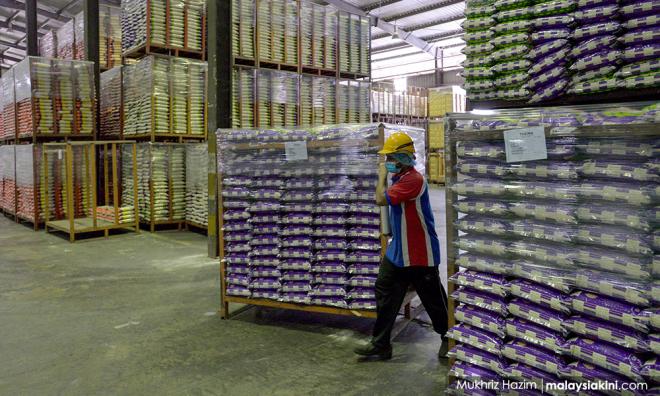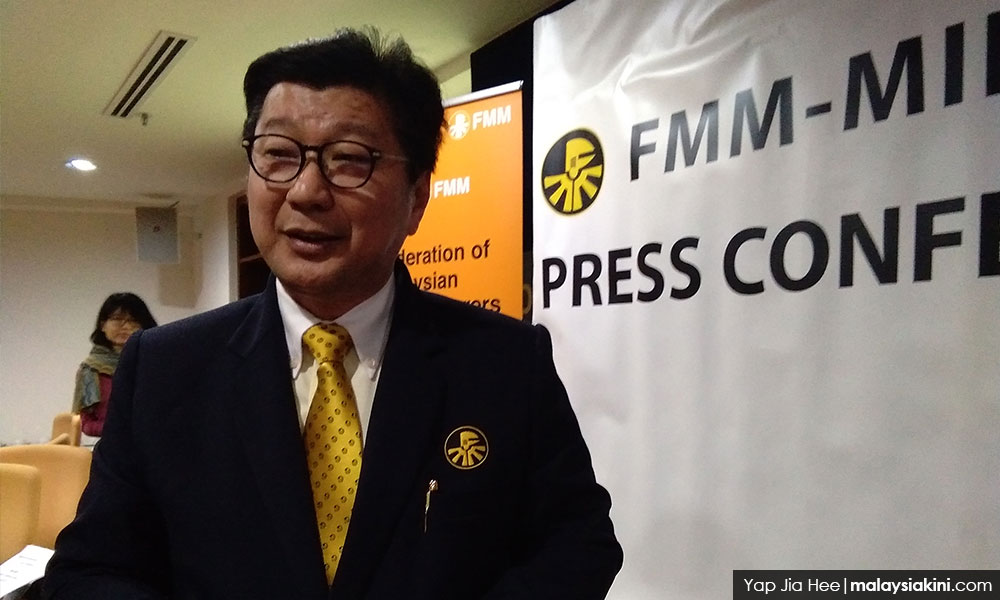
CORONAVIRUS | Some 63 percent of surveyed manufacturing firms say they may need to lay off workers amid an economic downturn brought about by the Covid-19 pandemic, according to a survey by the Federation of Malaysian Manufacturers (FMM).
"The impact on some companies is greater than others and some might have to resort to lay-offs/retrenchments.
"Sixty-three percent indicated that they may have to resort to such cost-cutting measures with 47 percent having to do so within the next three to six months," FMM president Soh Thian Lai said in a statement.
Soh said of these companies, the majority (78.7 percent) say they would have to retrench up to 30 percent of employees while 27 percent indicated that they may have to lay off between 21 and 30 percent of workers. Another 22 percent say they have to lay off 11 to 20 percent of employees.
The survey was conducted between April 6 and April 10, involving 319 companies.
Soh said the survey found companies were undertaking several cost-cutting measures to try and retain workers.
This includes freezing headcount (67 percent), instituting unpaid leaves (59 percent), reducing work days per week (39 percent), reducing benefits agreed in collective agreement for unionised companies (34 percent) and reducing work hours per day (29 percent).
"The majority of companies in unionised environment (62 percent) are unable to negotiate to implement cost-cutting measures to save jobs resulting in 48 percent of these unionised companies having to resort to retrenchments or lay offs in the event that the unions refuse to accept the measures such as a reduction in working days or hours," he said.
Soh said the government's announcement of the three-month wage subsidy was a great relief but urged the government to consider further measures.
He said 15 percent of compaines couldn't claim the wage subsidy for all their employees as they have an average of 377 employees earning less than RM4,000 and an average of 143 employees earning more than RM4,000.
The wage subsidy is for employees earning less than RM4,000 and capped at 200 workers.
Under the government's additional stimulus plan to help small and medium-sized enterprises (SMEs), all companies with local employees earning a monthly salary of RM4,000 will qualify for wage subsidies of between RM600 to RM1,200 depending on company size.
For companies with more than 200 workers, the government will offer RM600 a month for every retained local worker for up to 200 workers.
For companies with 76 to 200 employees, the government will offer a wage subsidy of RM800 a month for every retained local employee and for firms with 75 employees or less, they will get RM1,200 for every retained local employee.
Companies in the top category must also see a fall in revenue of at least 50 percent since January to qualify.

Soh (above) said 22 percent of respondents did not apply for the wage subsidy as they did not meet the 50 percent reduction in revenue criteria but expect to see the impact on sales by the second half of this year.
He added that 74 percent of respondents opined that the wage subsidy was insufficient to retain employees in the next three to six months without any pay cuts or retrenchments.
"Manufacturers are facing a tremendous strain on their revenue and ability to sustain business amidst the pandemic and the movement control order (MCO).
"More than 50 percent of the respondents of a recent survey conducted by the FMM on the impact of the MCO on employment revealed that revenue had dropped by more than 50 percent.
"This has led to the inability of businesses to sustain their operations beyond three months if the MCO continues to be extended and conditions do not improve," he said.
He said only 44 percent of respondents say they can sustain their current work force for three months while another 34.1 percent say they can only sustain for a month.
As such, Soh proposed the following measures:
- To extend wage subsidies to all employees irrespective of wages for up to six months, and without revenue conditions.
- Allow non-essential product manufacturers to operate, but under certain guidelines and 50 percent workforce to cater to the export market.
- Exemption or reduction of Employees Provident Fund (EPF) contribution until December, a waiver of income tax for the year of assessment 2020 and suspension of foreign workers levy.
- Ensuring sufficient loans with reasonable interests.
- Increase electricity bill discount to 15 percent for up to six months regardless of usage and remove the maximum demand charge as well as reducing natural gas tariff by 35 percent.
- Waive assessment tax and quit rent and enhance internet accessbility.
- Mkini



No comments:
Post a Comment
Note: Only a member of this blog may post a comment.